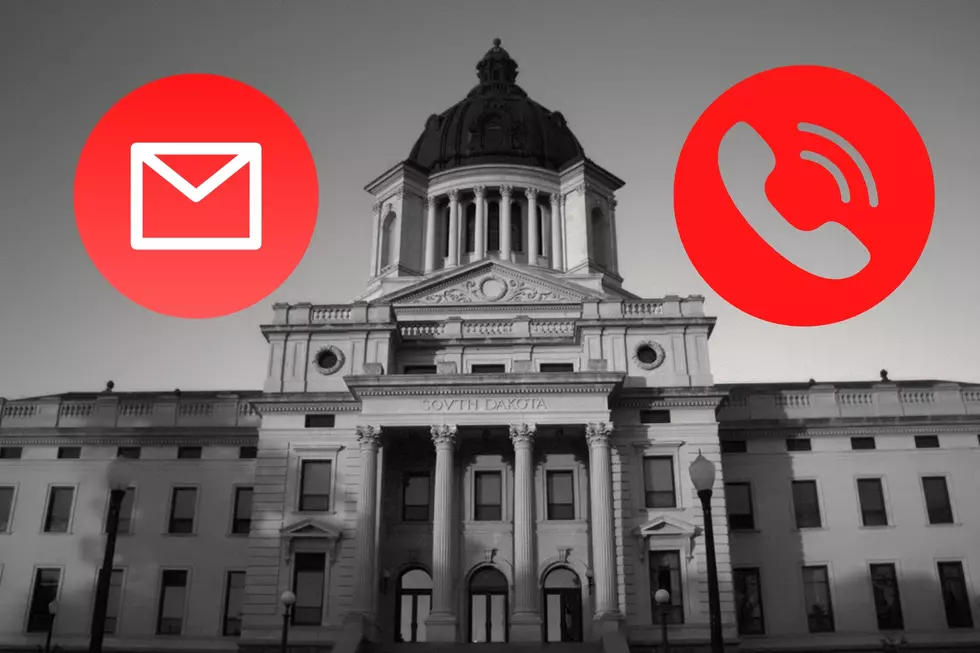
Senate GOP Effort on Trump Border Wall Seems to Fall Short
WASHINGTON (AP) — An 11th-hour Republican rescue mission to save President Donald Trump from an awkward defeat by the GOP-run Senate on his declaration of a national emergency at the Mexican border seemed to collapse Wednesday.
The setback made it likely that defections from his own party will force Trump to cast his first veto — on a struggle directly related to his signature issue. It also left Republican senators facing a painful choice: defy a president who commands loyalty from conservative voters or acquiesce to what many lawmakers from both parties consider a dubious and dangerous expansion of presidential authority.
After a closed-door lunch, GOP lawmakers predicted that the Senate would approve a resolution Thursday annulling the emergency Trump has declared along the southwest border. The Democratic-led House passed the legislation last month, meaning Senate assent would send it to Trump.
Republicans hoped Trump would support a separate measure curbing a president's powers to declare future emergencies. Had he done so, they thought, it would be easier for reluctant GOP senators to support the emergency Trump has proclaimed to steer $3.6 billion more than Congress has approved for barrier construction.
But during the GOP lunch, Trump called Sen. Mike Lee, R-Utah, chief sponsor of the bill limiting future emergency declarations, and told him he opposed that proposal. The call was described by two officials who weren't authorized to publicly discuss the matter and described it on condition of anonymity.
Republican hopes of a turnabout rested largely on a familiar phenomenon of the Trump administration — an unexpected change in mind, as he's done in congressional battles over health care and immigration.
Trump made clear he was not backing away from his border emergency.
He told reporters that he has told GOP senators to "vote any way you want."
But he added, "Anybody going against border security, drug trafficking, human trafficking, that's a bad vote." Framing the vote that way seemed to be a message all but aimed directly at undecided GOP senators facing re-election races next year, of whom there are several.
Trump made a similar point earlier in a tweet.
"Republican Senators are overthinking tomorrow's vote on National Emergency," he wrote. "It is very simply Border Security/No Crime - Should not be thought of any other way. We have a MAJOR NATIONAL EMERGENCY at our Border and the People of our Country know it very well!"
Even so, there was little doubt among GOP senators about what would happen in the showdown vote.
Asked if Trump opposed Lee's bill and if the resolution disapproving the emergency was expected to pass, No. 2 Senate GOP leader John Thune of South Dakota said, "That seems to be the state of play."
House Speaker Nancy Pelosi, D-Calif., tried making it even harder for uncertain Republicans to support Trump's border emergency. She said the House would never even consider the bill limiting future declarations by a president, including Trump.
"Republican Senators are proposing new legislation to allow the president to violate the Constitution just this once in order to give themselves cover," Pelosi said in a statement. "The House will not take up this legislation to give President Trump a pass."
With Republicans controlling the Senate 53-47, it will take just four GOP defections to approve the measure, which the House passed last month.
Four have said they would vote no: Sens. Thom Tillis of North Carolina, Susan Collins of Maine, Lisa Murkowski of Alaska and Kentucky's Rand Paul. Tillis and Collins face potentially competitive re-election fights in 2020.
Tillis showed signs of wavering on Tuesday when he suggested to colleagues that he might support Trump's border emergency if he was willing to curtail future presidential emergencies, according to two Republicans who described Tillis' private comments on condition of anonymity.
Tillis said Wednesday that his vote was "still a work in progress," citing continuing discussions.
An administration official said Wednesday that the White House is skeptical there will be enough votes to head off a Senate defeat and is reluctant to back limits on future declarations unless a victory on the resolution is assured. The official was not authorized to publicly private conversations and spoke on condition of anonymity.
Under a four-decade old law, presidents have wide leeway in declaring a national emergency. Congress can vote to block a declaration, but the two-thirds majorities required to overcome presidential vetoes make it hard for lawmakers to prevail.
Lee's proposal says a presidential emergency would last 30 days unless Congress votes to extend it. It would apply to future emergencies, but would not Trump's current border emergency unless it is refiled next year, as is required annually by law to be continued.
A vote on Lee's plan was expected after Congress returns from a recess later this month.
The strongest chance of blocking Trump's border emergency is likely several lawsuits filed by Democratic state attorneys general, environmental groups and others.
Copyright 2018 The Associated Press. All rights reserved. This material may not be published, broadcast, rewritten or redistributed.
More From KXRB









